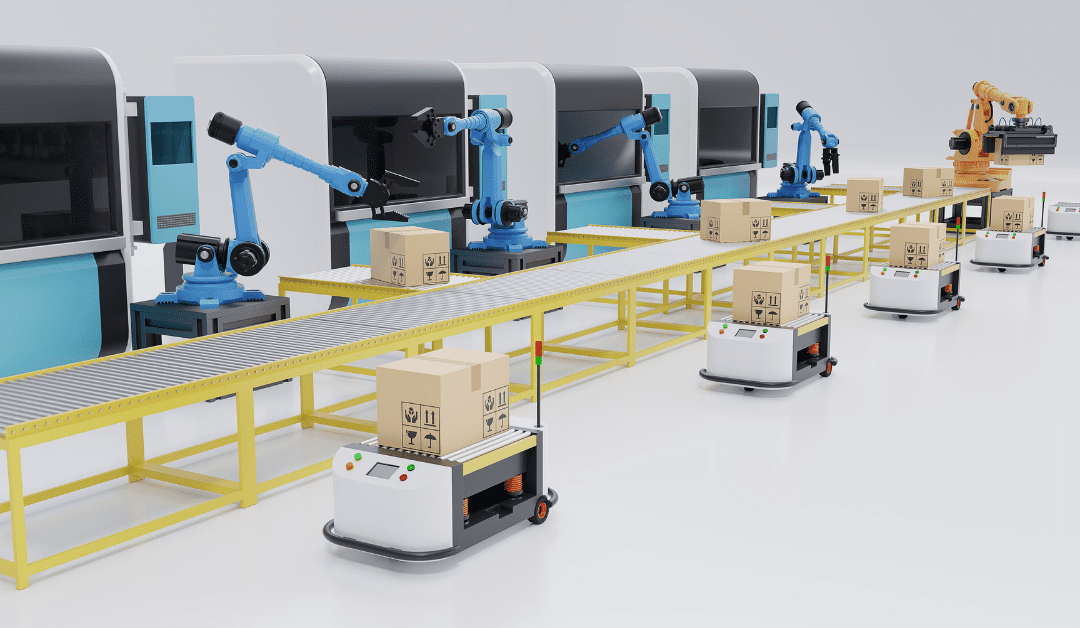Whatever stage you are at exploring options for your future career, Factory Automation is going to have an impact. Factory Automation, sometimes referred to as Industrial Automation, is the use of machines, equipment, and software programmes that automate processes in factories.
The concept of Factory Automation goes much further than the manufacturing sector, however, which is why Factory Automation is likely to impact your future career.
So, what is Factory Automation? Is it a threat to your future job security or is it an opportunity? Why is Factory Automation a thing? What are the benefits, and how can you take advantage?
The Uber Example
Uber is not a manufacturing business, but it can still be used as an example of how Factory Automation works. At its core, Uber is a private hire taxi business.
When Uber first started, taxi companies already used technology in their business, such as software to allocate jobs to drivers, with those jobs sent automatically to the driver’s car.
Uber took this a step further by letting customers electronically book their taxi, pay for their taxi, and track the arrival of their taxi. In other words, Uber automated processes which in the past were done manually.
For example:
- Phoning to book a taxi became booking on the app
- Paying the taxi driver cash became paying for your journey with a card on the app and in advance of the journey
- Phoning the taxi company back to check how long the taxi is going to be changed to tracking the car in real-time on the app
Uber plans to take this automation further, however, automating and digitising additional elements of the taxi business. The most visible example of this is its ambition to have driverless cars. With driverless cars, the entire process of booking a taxi, paying for a taxi, and completing the journey, will be automated.
Changing Business
Uber is such a good example when discussing Factory Automation because of what is likely to happen after the company gets to the above stage of automation.
This is because many experts believe that once Uber (or any other company) gets to the stage of having driverless cars on the road, the entire concept of car ownership will become outdated. Why go through the hassle and expense of car ownership when you can pay-as-you-go with services like Uber?
Factory Automation Explained
Back to factories and production lines: factory automation involves replacing processes in manufacturing operations that are currently completed manually with automated alternatives.
This will mean fewer production line operatives and more robotic, machine, and software solutions, but Factory Automation goes much further than this.
For example, maintaining machines on production lines is largely a manual process at the moment. In other words, somebody in the factory will have responsibility for machine and equipment maintenance, so will schedule maintenance work and deal with breakdowns when they occur.
With Factory Automation, however, you replace this with sensors on the equipment in addition to software that monitors the output from those sensors. This enables the software to schedule maintenance at a time that will have as little impact on production capabilities as possible, as well as being able to predict breakdowns before they occur.
The Future
As with the Uber example, Factory Automation, as well as Factory Automation principles, has the potential to completely disrupt industries, changing business models and the way we work and live.
For example, at E-Cubers, we are using Factory Automation principles and technologies to automate agriculture on small farms in Ireland, making these farms more financially viable.
What about your future? Factory Automation will result in some jobs no longer being required, but new positions and skills will replace them. One of the most important is the role of Equipment Systems Engineer. They are the people who develop, implement, and maintain factory automation solutions and equipment.
So, Factory Automation offers benefits to business. Thinking about your career, you can benefit from Factory Automation too by developing skills that are needed now and that will be needed in the future.

